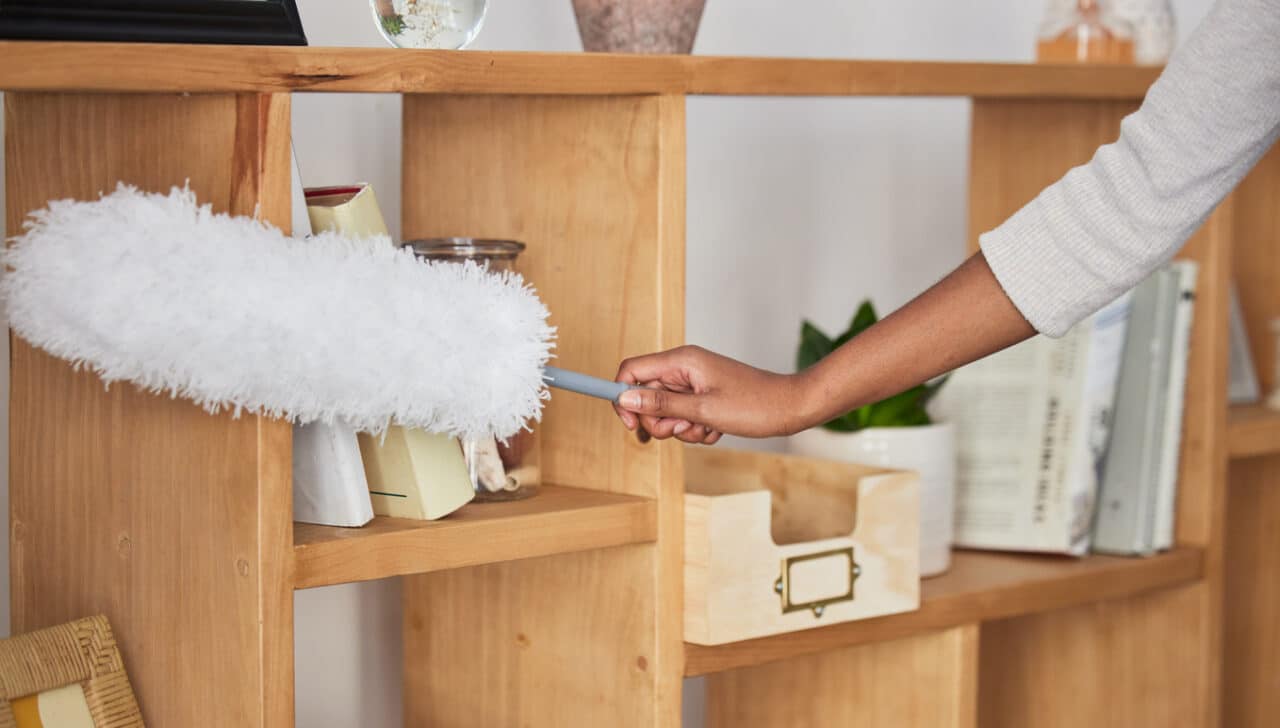Dust mites are tiny pests that feed on dead human skin cells. Although they are too small to see, approximately 80% of homes in the United States have dust mite allergens in one or more beds. When you have a dust mite allergy, your immune system reacts to the proteins found in dust mite feces, urine or bodies, leading to symptoms including but not limited to congestion, coughing, itchy mouth, nose and throat, postnasal drip, red and watery eyes, congestion, wheezing and worsening asthma symptoms.
Approximately 20 million people in the United States have a dust mite allergy. If allergy symptoms have become a common occurrence in your home, take a look at our list of tips to reduce dust mite exposure.
1. Run a Dehumidifier

Dust mites stay hydrated by absorbing moisture from humid air. When the humidity is too low, they can’t survive. Use a dehumidifier to maintain a humidity level below fifty percent in your home. In Huntsville, where humidity levels are high, it is also helpful to use kitchen and bathroom exhaust fans to remove dust mites.
2. Vacuum and Dust Regularly
Dust mites thrive in carpeted and upholstered areas. If you have carpeting in your home, vacuum at least once weekly, targeting hard-to-reach spots like under furniture and on curtains. If you have hardwood, sweep and mop regularly.
3. Wash Bedding
Most dust mite exposure happens while you sleep, as the high concentration of skin cells in your bedding attracts the tiny creatures. Wash your bedding at least once a week and opt for allergen-friendly linen options and mattress covers where possible. To prevent excessive dust buildup, you should also aim to replace your mattress every seven to 10 years, faster if it shows signs of damage or sagging.
4. Use an Air Filter
Although dust mites typically reside on surfaces, wind from fans or open windows can disperse them into the air. To combat this, use an efficient HEPA air filter, which can effectively remove dust and other allergens, improving the air quality in your home.
By running a dehumidifier, vacuuming and dusting regularly, washing bedding and using an air filter, you can reduce dust mite exposure in your home. For more information on managing your allergies, contact North Alabama ENT Associates today.